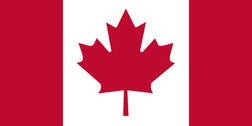
In February 2020, Canadian senator Julie Miville-Dechêne introduced Bill S-211, i.e., the Modern Slavery Act. Accordingly, this act legislates the Fighting Against Forced Labor and Child Labor in Supply Chains Act and amends the Customs Tariff.
Millions of people are victims of modern slavery worldwide. Due to the intricacy of today’s global supply networks, modern slavery is a critical issue. The Canadian Modern Slavery Act aims to combat forced labor and child labor with corporate supply chains.
OFFER: For every Conflict Minerals reporting request, Enviropass offers FREE Slavery and Trafficking Risk reporting!
Contact us today to redeem your offer!

In February 2020, Canadian senator Julie Miville-Dechêne introduced Bill S-211, i.e., the Modern Slavery Act. Accordingly, this act legislates the Fighting Against Forced Labor and Child Labor in Supply Chains Act and amends the Customs Tariff.
The table below provides the timeframe for this act:
Date | Progress |
|---|---|
February 2020 | Introduced by Canadian senator Julie Miville-Dechêne |
November 2021 | First reading in the Senate |
April 2022 | Passed in the Senate |
May 2022 | First reading in the House of Commons |
May 2023 | Passed in the House of Commons and became a law |
May 31, 2024 | Subject entities must submit their first reports |
The Act’s goal is to carry out Canada’s international commitment to combat human trafficking, namely forced labor and child labor. In particular, the Canadian Modern Slavery Act requires certain government institutions and private-sector entities to report on the steps they have taken to prevent and mitigate the risk of using forced labor or child labor in their operations or supply chains. Additionally, the Act establishes an inspection framework and empowers the Minister to compel an entity to furnish specific information. Moreover, the Modern Slavery Act makes it illegal to import goods produced, in whole or part, through forced labor or child labor.

The Act imposes reporting requirements on every entity listed on a Canadian stock exchange that sells, produces, distributes, or imports goods into Canada (or controls an entity involved in any of these activities) if it meets at least two of the following criteria:
On or before May 31 of each year, the government institution or private-sector entity must report to the Minister on the efforts taken during the preceding financial year to avoid and limit the risks of forced labor or child labor at any stage of the manufacturing process. The annual modern slavery report must be available online and contain the following information:

The director or officer of the institution or entity must certify that all the information provided in the report is genuine, accurate, and comprehensive. Nevertheless, the report does not require approval from the board of directors.
Notably, the government institution or private entity must make the annual modern slavery report publicly accessible by publishing it prominently on its website.
Every person or entity is guilty of an offense and is subject to a fine of up to $250,000 if:
Furthermore, if a business contravenes the Act, any officer, agent, or director who ordered, approved, consented to, acquiesced in, or engaged in the violation is a party to and guilty of the offense. Hence, that person is also subject to the specified penalty.
The Canadian Modern Slavery Act is a response to the United Nations Guiding Principles on Business and Human Rights. This guideline requires member nations to develop and implement National Action Plans (NAPs). Besides Canada, other countries have enacted similar legislation and obligations, including:

Do you have questions about Social Compliance, including the Modern Slavery Acts and laws against Human Trafficking? Contact Enviropass!